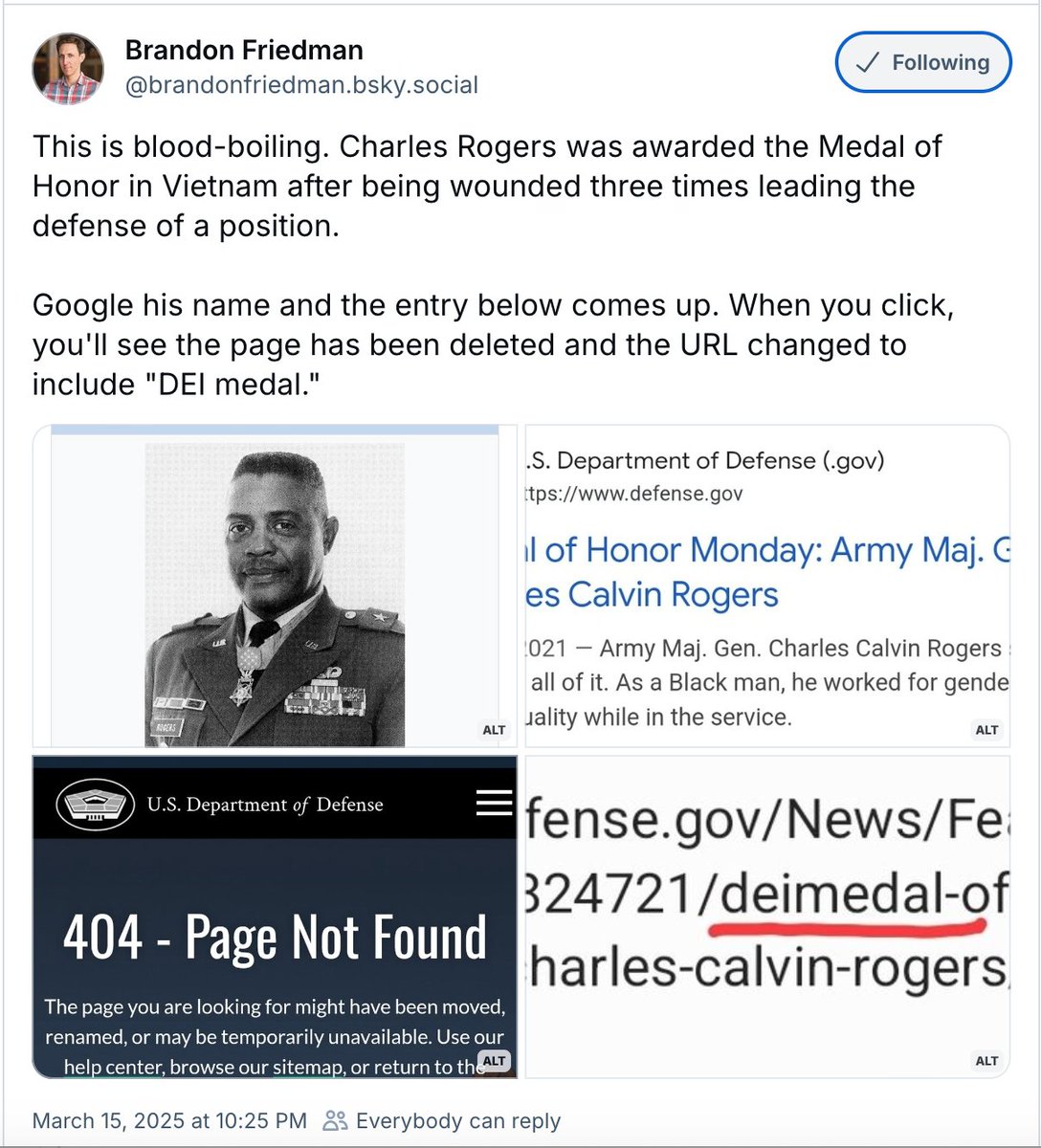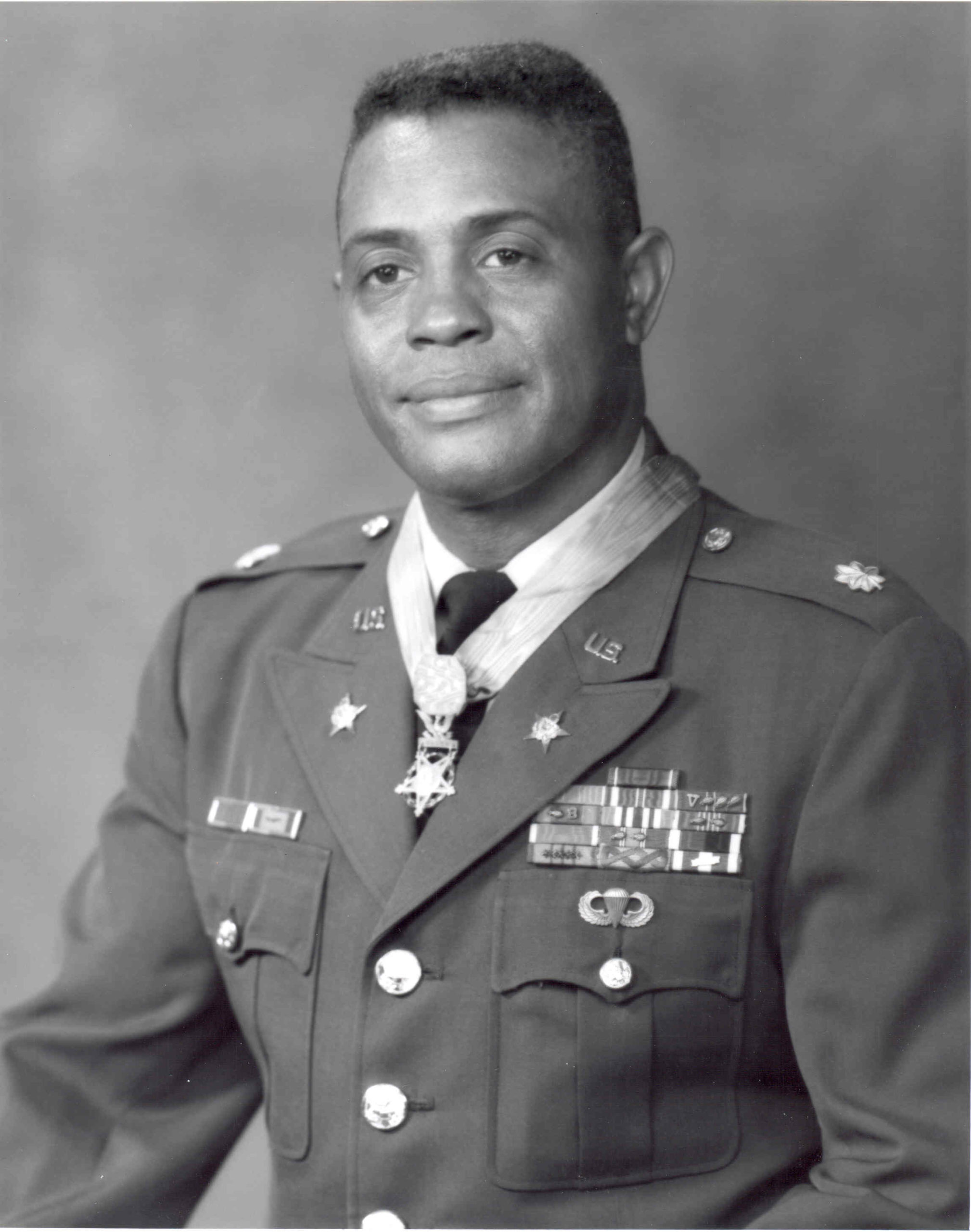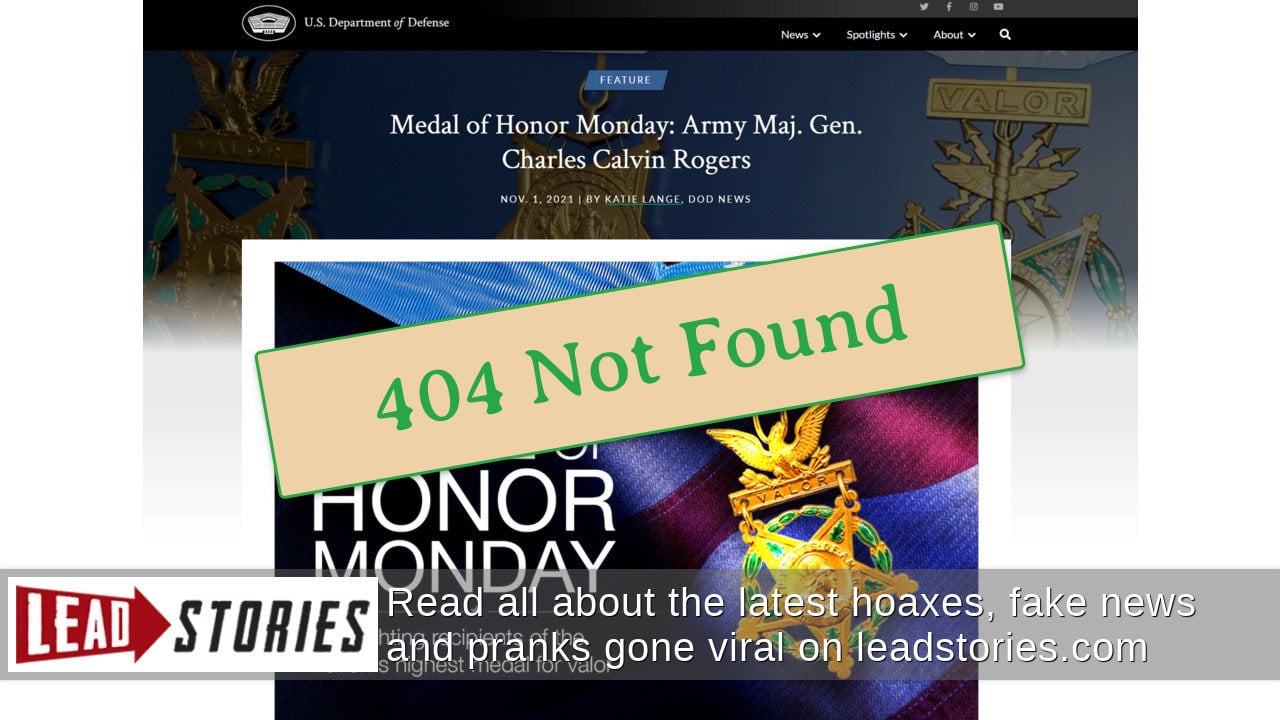Can a nation truly honor its heroes while simultaneously erasing their legacies? The recent removal of a Department of Defense webpage honoring Army Major General Charles Calvin Rogers, a Medal of Honor recipient, ignites a critical examination of how we remember or forget the valor of those who served.
The story of Charles Calvin Rogers is one of extraordinary courage and sacrifice. Awarded the Medal of Honor, the United States' highest military decoration, in 1970, his actions during the Vietnam War stand as a testament to unwavering bravery. Rogers, then a Lieutenant Colonel in the field artillery, distinguished himself during the defense of an artillery base near the Cambodian border. Despite being wounded three times in the face of relentless enemy fire, he continued to lead his men, ensuring the base's survival. His actions on November 1, 1968, at the Fishhook, near the Cambodian border, in the Republic of Vietnam, earned him the nation's highest honor for "conspicuous gallantry and intrepidity in action at the risk of his life above and beyond the call of duty." This recognition came from President Richard Nixon on May 14, 1970. His citation for the Medal of Honor details the extraordinary circumstances of his heroism, painting a vivid picture of a leader who placed the safety of his troops and the success of his mission above his own well-being. He commanded the 1st Battalion, 5th Artillery. The incident underscores not only Rogers individual courage but also the leadership qualities he displayed under fire.
| Category | Details |
|---|---|
| Full Name | Charles Calvin Rogers |
| Date of Birth | September 6, 1929 |
| Place of Birth | Clarksburg, West Virginia |
| Date of Death | September 22, 1990 (aged 61) |
| Place of Death | Washington, D.C. |
| Military Branch | United States Army |
| Rank at Medal of Honor Award | Lieutenant Colonel |
| Highest Rank Achieved | Major General |
| Unit | 1st Battalion, 5th Artillery |
| Conflict | Vietnam War |
| Medal of Honor Citation | For actions on November 1, 1968, near the Cambodian border, Republic of Vietnam. |
| Other Awards | Distinguished Flying Cross, Legion of Merit, Purple Heart |
| Burial | Arlington National Cemetery |
| Later Life | Baptist Minister, Promoter of Racial Harmony in the Army |
| Bridge Named After | Charles C. Rogers Bridge in Fayette County, West Virginia |
| Reference | Congressional Medal of Honor Society |
The context surrounding the award is crucial. The Fishhook region, where Rogers' actions took place, was a hotbed of intense combat. The terrain and the nature of the conflict meant that artillery bases were frequently targeted, making their defense a matter of life and death. The enemy's determination and the strategic importance of these bases amplified the risk faced by the soldiers defending them. Rogers' leadership in such a scenario, his willingness to expose himself to danger while orchestrating the defense, speaks volumes about his character and his commitment to his troops. His actions are not merely about survival; they are about strategic thinking under duress, the ability to inspire confidence in others, and the unwavering pursuit of victory, even when faced with the direst circumstances. He also won the distinguished flying cross, the legion of merit and a purple heart.
The removal of the webpage, according to the Department of Defense, was part of an automated process. The circumstances of its removal, whether due to website updates or other factors, have raised concern, especially when the actions are connected to the department's effort to incorporate diversity, equity, and inclusion (DEI) principles. The incident has prompted a re-evaluation of the importance of preserving the stories of heroes like Rogers. The incident has sparked a debate about the balance between modernizing digital infrastructure and preserving historical legacies.
Charles Rogers's service extended beyond the battlefield. After a distinguished military career, he became a Baptist minister, a role that allowed him to continue serving others and promote racial harmony. He worked with U.S. troops in Germany and dedicated his life to fostering understanding within the armed forces and promoting equality. This transition from military leadership to spiritual guidance highlights a commitment to service that went beyond the call of duty. His dedication to faith and community following his military service offers a more profound perspective on his character. His post-military endeavors reflect a commitment to improving the lives of others, demonstrating that his heroism was not confined to a single moment but was a life-long commitment to service and betterment.
The legacy of Charles Calvin Rogers is a poignant reminder of the sacrifices made in the name of freedom. Its a story of individual bravery, strategic leadership, and unwavering dedication to duty. While his military actions were recognized with the Medal of Honor, his post-military life further underscores the value of his service. His contributions continue to inspire generations, making his story worthy of reflection. His memory lives on not only in history books and military records but also in the hearts of those who recognize the importance of heroism and sacrifice.
The controversy surrounding the erasure of Rogers's digital profile also raises questions about the potential impact of these kinds of actions on historical memory, especially the way the Department of Defense handled the situation. The defense department says a profile of the vietnam war veteran was caught in an auto removal process. The military has a duty not only to honor its heroes but also to ensure their stories continue to inspire future generations.
His actions in the defense of the artillery base were marked by remarkable resilience. Despite sustaining three separate wounds, he remained in command, directing his troops and ensuring the base's safety. The Medal of Honor citation details his strategic thinking. His leadership during the battle was pivotal, saving countless lives and preventing the enemy from overrunning the position. The recognition highlights Rogers exceptional courage, selflessness, and dedication to the men under his command, underscoring the value of valor and leadership under fire.
Rogers's Medal of Honor ceremony was a significant event in 1970. It was a moment of national recognition, and the president of the united states of america, in the name of congress, takes pleasure in presenting the medal of honor to lieutenant colonel (field artillery) charles calvin rogers. It was a chance to honor his sacrifice and to celebrate his courage. The ceremony served not only as a tribute to Rogers but also as a symbol of the nation's gratitude to all Vietnam War veterans. It was an emotional moment, filled with pride and a deep appreciation for his unwavering commitment. Rogers was presented with the medal of honor by president richard nixon in 1970. The ceremony provided a platform to recognize his bravery, but the recent events have left a noticeable mark on the country. His actions embody the ideals of selflessness, valor, and the warrior ethos. This is a story of warfighting excellence.
Beyond the battlefield, Rogerss legacy extends into his community. His remains were laid to rest at Arlington National Cemetery, a place of honor reserved for the nations heroes. In 1999, the Charles C. Rogers Bridge in Fayette County, West Virginia, where he was born, was renamed in his honor, solidifying his place in the local history. These recognitions demonstrate that Rogers's service transcended his military career and left a lasting imprint on his community. The bridge is a symbol of remembrance and an everyday reminder of his contributions. These acknowledgments show the deep respect and appreciation that the community has for his dedication and contributions. These memorial acts, from burial to the bridge renaming, underscore the long-lasting impact of Rogers's service.
This incident serves as a lesson for us all. The removal of a webpage honoring a hero serves as a critical lesson in memory and how we, as a society, value the contributions of the brave. It highlights the importance of preserving history and the stories of the people who shaped our nation. The events bring up more questions about how to honor these brave men and women. Its a story that challenges us to consider the implications of what we do to honor those who serve. What is the ultimate message when a website dedicated to honoring bravery is, in effect, wiped out? The answers to these questions could help define the way we remember the past.
The legacy of Charles Calvin Rogers is a testament to the power of one individual's actions. He earned the medal of honor after being wounded three times while defending a military base. The actions of Charles Calvin Rogers are a call to action. It is a reminder of the courage, service, and sacrifice. Charles calvin rogers earned the medal of honor while serving as lieutenant colonel, 1st battalion, 5th artillery at the fishhook, near the cambodian border in vietnam on november 1, 1968. His story is an essential part of American history, and it deserves to be remembered and honored. His commitment to duty and his bravery continue to inspire all who learn of his story.


